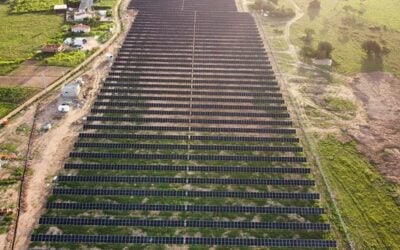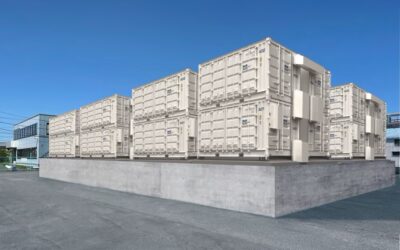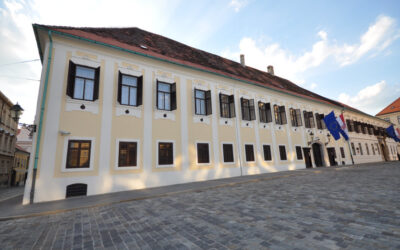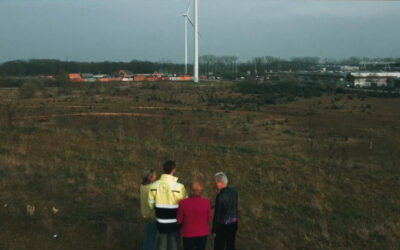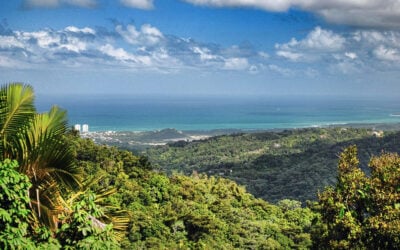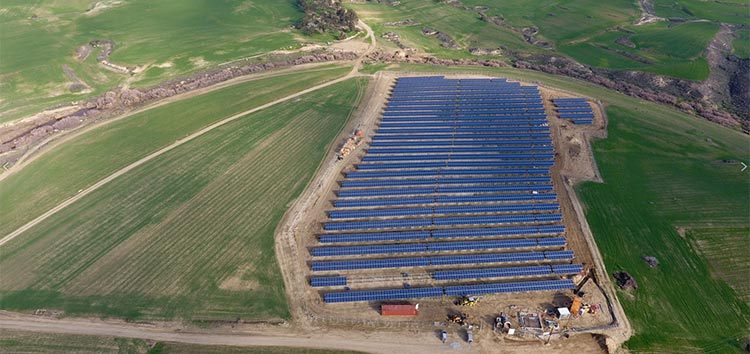
Cyprus has set out a policy framework for the integration of energy storage systems after reaching a funding agreement with the European Commission (EC).
The Mediterranean island’s Ministry of Energy, Commerce and Industry (MECI) last week announced its ‘General policy framework for energy storage systems’.
Enjoy 12 months of exclusive analysis
- Regular insight and analysis of the industry’s biggest developments
- In-depth interviews with the industry’s leading figures
- Annual digital subscription to the PV Tech Power journal
- Discounts on Solar Media’s portfolio of events, in-person and virtual
Or continue reading this article for free
It said the government will be deploying centralised energy storage systems and at the same time launched a public consultation into how best to direct funding to support renewable energy sources that can be combined, or hybridised, with energy storage system (ESS) technology.
The network of central energy storage systems will be installed “by the State”, MECI said, and they will be owned by the national energy supplier Cyprus Energy Authority, through its business unit for networks. The systems will be administered by the Cyprus Transmission System Operator (TSOC), which as the name implies, is the national transmission system manager.
Central energy storage
The ministry said at least €40 million (US$45 million) will be allocated for the central storage systems that will be state built, owned and administered.
While it didn’t mention in a public announcement how technology providers, contractors and other partners will be chosen, MECI did say that any battery energy storage system (BESS) projects must be completed within 18 to 24 months after receiving required approvals. Whereas for non-battery systems, a longer timeline for implementation will be allowed.
Hybrid renewables
Meanwhile the government is budgeting to fund between €10 million and €40 million of the cost of renewable energy projects “with the possibility of energy storage”. Respondents have just a few days to provide input into the first phase of the public consultation on this initiative, which is open until just before midnight on 26 July 2023.
EU and national funding
The island country with a population of about a million has been a full Member State of the European Union (EU) since 2004.
Cyprus’ National Energy and Climate Plan has a key objective of making renewable energy at least 22.9% of final energy consumption across all sectors including electricity, heat and cooling, and transport by 2030.
For the electricity sector, that means a share of 30.3% renewables, with 14% for transport and a much higher 39.4% target for heating and cooling. In 2019, the electricity sector’s renewable energy share stood at just 9.8%.
On 8 July, the EU and Cyprus signed a Partnership Agreement, which cements a commitment from the EU to invest a total €1 billion into the country and its Just Transition Fund (JTF) between 2021 and 2027, while settling on terms for how that spending should be directed.
The JTF has a dedicated budget of €101 million, including funding to be spent in areas like strengthening transmission and distribution (T&D) networks to accommodate energy storage and renewable energy, as well as supporting small and medium-sized businesses to adopt new technologies including renewables. It will also support skilling up of Cyprus’ workforce in green technology industries.
MECI said its support plan for hybrid renewables will be paid for through a combination of JTF money, as well as with revenues from its national Pollutants Fund, as well as dedicated funds for renewable energy systems (RES) and energy efficiency (EE).
The €10 million to €40 million funding for hybrid renewables support is subject to approval through the state’s 2024 budget, while the €40 million expected to be allocated for centralised ESS is subject to EC approval of the plan.
Latest beneficiary of EU’s energy storage push
The EU, focusing on raising renewable energy targets in the wake of the Russian invasion of Ukraine with the REPowerEU plan and implementing the various pillars of the European Green Deal, has directed funding or approved state aid for energy storage in numerous European countries in recent months.
Most recent announcements covered by Energy-Storage.news include the approval of €1.1 billion state aid in Hungary, €150 million in grants for renewable energy and storage in Slovenia, funding from the EU-wide Recovery and Resilience Facility for Estonia.
Other recipients include Romania, Croatia and Finland, while Greece is using EU funding towards an ongoing 400MW tender scheme, with projects in the latest round eligible for grants of up to €200,000 (US$218,000) per MW of installed power.
European Commissioner for energy Kadri Simson has described energy storage as the “centrepiece” of the energy transition and in May welcomed the formation of a European Energy Storage Coalition of stakeholders.

